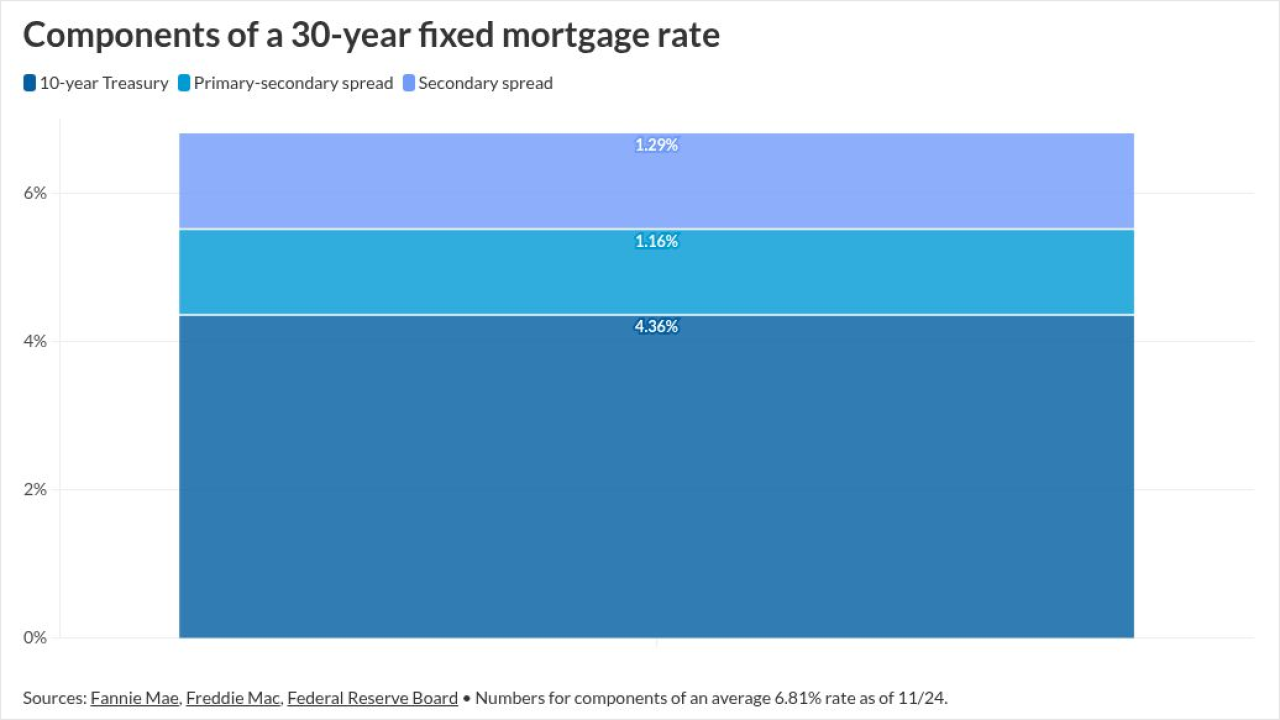
The Supreme Court's decision Monday not to hear a closely watched lending case leaves unresolved some key questions for the U.S. financial industry.
Among them: Can marketplace lenders convince investors that loans in excess of state rate caps are safe to buy? Will continued uncertainty impact the market for certain bonds that are backed by consumer loans? And should banks be worried about a potential erosion of their longstanding pre-emption authority?
"We're sort of at halftime of the game here. And we still need to see how the second half of the game plays out," said Brian Korn, a partner at Manatt, Phelps & Phillips.
What follows is a look at the impacts of Monday's developments.
Madden v. Midland Funding heads back to the lower court. This is the case that the Supreme Court declined to hear. It will now go back to U.S. District Court for further proceedings.
The lawsuit arose from the sale of charged-off credit card debt from a Bank of America subsidiary to Midland Funding. A New York resident named Saliha Madden sued, arguing that once the debt was sold to a nonbank, the Empire State's usury cap applied. Therefore, to the extent that Madden originally owed interest at rates in excess of New York's cap, it could not be collected.
The 2nd Circuit Court of Appeals sided with Madden in a May 2015 ruling, and one result was that lenders curtailed lending to riskier borrowers in New York, Connecticut and Vermont.
Although Midland Funding lost its appeal, the firm still has legal arguments to make, and could still prevail in district court. But even if that happens, the appeal court's ruling would remain in effect in New York, Connecticut and Vermont, said Kevin Petrasic, a partner at White & Case.
Marketplace lenders are still plagued by uncertainty. For more than a year, consumer lenders that partner with banks in an effort to get around state usury laws have been seeking to reassure skittish investors that their loans are not overly risky. The Supreme Court's decision to stay out of the fray could make their job more difficult.
"With further court decisions needed to provide more clarity around the likelihood of losses resulting from the use of the partner bank origination model, whether the current arrangement remains viable remains to be seen," Alan Birnbaum, a senior analyst at Moody's Investors Service, said in a press release Monday.
Under the business model at issue, lenders originate the loans but typically hold on to them for only a few days before they are sold to investors.
Earlier this year, Lending Club, which has originated more loans than any other marketplace lender, made changes to its relationship with Utah-based WebBank in an effort to blunt the impact of the Madden case.
Lending Club is also facing a proposed class-action lawsuit that raises similar legal issues.
In a statement Monday, Lending Club said, "While we are confident that the facts of the case do not directly apply to our business, we look forward to a decision by the lower courts which will reduce unnecessary uncertainty for investors on our platform."
Two other large marketplace lenders, Prosper Marketplace and Avant, no longer make loans to residents of New York, Connecticut and Vermont at rates that exceed the state usury caps.
A recent study by law professors at Columbia, Fordham and Stanford found that after the appeal court's decision, the volume of marketplace loans to borrowers with low credit scores in those three states plunged.
Prosper declined to comment Monday on the Supreme Court's decision. Avant said in an email, "The ruling was largely expected and does not change the current operations of the Avant platform."
One upside for the marketplace lending industry is that the sector no longer faces the risk of an unfavorable Supreme Court ruling. The 2nd Circuit's decision only applies in three states; a Supreme Court ruling would have been felt nationwide.
"I think it's status quo," said Richard Eckman, a partner at Pepper Hamilton. "People have had to deal with this case for a while."
Broader questions for banks and consumer lenders remain unresolved. The legal uncertainty spawned by this case extends beyond marketplace lending and into other parts of the consumer finance industry. Firms that package various types of consumer loans into bonds have also been watching the case closely.
"By refusing to grant review now, the Supreme Court is prolonging the uncertainty over whether and when the Madden decision will be overruled or limited to its facts," Richard Johns, executive director of the Structured Finance Industry Group, said Monday in a written statement.
"The market is already moving quickly to respond to this uncertainty and evaluating or putting in motion plans that may include exiting products and markets," the statement said. "The end result is clear. This action will reduce the overall availability of credit to consumers, particularly low income consumers."
The Madden case also carries implications for the wider doctrine of pre-emption, or the application of federal banking law in a way that pre-empts state laws. Pre-emption is a bedrock privilege of the U.S. banking sector.
The Supreme Court's decision not to hear the appeal suggests that it will not be either expanding or circumscribing banks' pre-emption authority in the next year.
But some industry lawyers were heartened by the fact that the Office of the Comptroller of the Currency declared last month that the appeals court's ruling was wrongly decided. That opinion could serve as ballast for the financial industry in future legal challenges.




